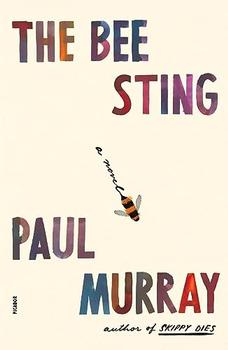Summary | Excerpt | Reading Guide | Reviews | Beyond the book | Read-Alikes | Genres & Themes | Author Bio

A Novel
by Camilla BarnesPlaywright Camilla Barnes has crafted a character-driven debut novel with little conventional plot, relying instead on the central family's complex relationships to drive the narrative: the parents, born circa World War II as members of the Silent Generation; their Gen X daughters, Charlotte and Miranda; and a Gen Z granddaughter, Alice. Although Barnes never explicitly labels them as such, she fully captures each generation's defining traits.
At the heart of the novel is Miranda, the younger daughter, whose observations provide insight into her parents' worn-out marriage. Alongside her are Charlotte, her older sister, and Alice, her daughter, minor characters who nonetheless add depth and perspective. Their presence underscores the central themes: the passage of time, the burdens of familial obligation, and the silent weight of unspoken histories.
A thin plot thread emerges through Charlotte's efforts to document the family's history, for which she enlists Miranda's help. But Miranda is reluctant. Her monthly visits to her parents' home feel more like an obligation than a heartfelt desire to spend time with them—a reflection of the same sense of duty that has shaped her parents' lives. This interplay of expectation and reluctant caregiving ties into the novel's strongest topic: the cyclical nature of familial roles.
The story unfolds over the course of these visits, spanning from March to July, with each month serving as a chapter. Barnes employs a mix of genres and formats to structure her narrative, weaving Miranda's first-person account with play dialogue, sections narrated in the third person (possibly the weakest moments of the novel, as they seem to serve as an easy solution to certain narrative challenges, such as resolving a "family secret"), emails between the sisters, and letters penned by their mother in the 1960s. Throughout the novel, this character remains unnamed, a choice that emphasizes how she is defined by roles rather than individuality, trapped within the identities of mother, wife, and grandmother. Her story is one of resignation: an unexpected pregnancy during her first year studying at Oxford locks her into a life of duty rather than desire or ambition. She follows the traditional route, because she cannot imagine not doing so.
However, despite being so outwardly traditional, the parents are eccentric in their own ways: after Miranda moved to Paris to pursue acting, they followed her to France, where they now tend to llamas, methodically number their chickens' eggs and consume them in order, play tennis in shorts even in January, and hoard objects in every corner of their crumbling home, which can almost be seen as a character itself, or, at the very least, as a metaphor symbolizing their aging, their stagnation, and the slow disintegration of their marriage.
Their conversations, full of English wit, are tinged with bitterness—not of fiery conflict but the exhausted, resigned exchanges of people who have stayed together simply because they don't know another way. They are captured through Miranda's observations and the theatre-like scenes in which Barnes showcases her background as a playwright; like Miranda, she also moved from England to France to work in theatre. Unlike her protagonist, Barnes has never been onstage, only behind the curtain: a position that has likely honed her powers of poignant observation.
The lightness of tone and other characteristics of English humor make for a deceptively fast read; many sections read like eavesdropped conversation. But beneath the humor lies a deeper, more melancholic feeling, as if the reader were a child hiding on the stairs, listening to their parents argue below. This sense is reinforced by Miranda's voice at the novel's start, which reads as unexpectedly childish. It is surprising to learn that she is nearly 50, but this seems intentional: her voice evolves over the course of the novel with an increasing cynicism, mirroring the inevitable shift in family dynamics as children become caretakers.
There are echoes of King Lear, the play Miranda has translated into French and is performing, in the way daughters take on the care of their aging (and eccentric) parents. But rather than a grand Shakespearean tragedy, Barnes presents a subtler, quieter meditation in her debut novel, an unravelling of family dynamics and obligations.
![]() This review
first ran in the April 9, 2025
issue of BookBrowse Recommends.
This review
first ran in the April 9, 2025
issue of BookBrowse Recommends.

If you liked The Usual Desire to Kill, try these:

by Anne Tyler
Published 2025
A new Anne Tyler novel destined to be an instant classic: a socially awkward mother of the bride navigates the days before and after her daughter's wedding.

by Paul Murray
Published 2024
From the author of Skippy Dies comes Paul Murray's The Bee Sting, an irresistibly funny, wise, and thought-provoking tour de force about family, fortune, and the struggle to be a good person when the world is falling apart.
He who opens a door, closes a prison
Click Here to find out who said this, as well as discovering other famous literary quotes!
Your guide toexceptional books
BookBrowse seeks out and recommends the best in contemporary fiction and nonfiction—books that not only engage and entertain but also deepen our understanding of ourselves and the world around us.